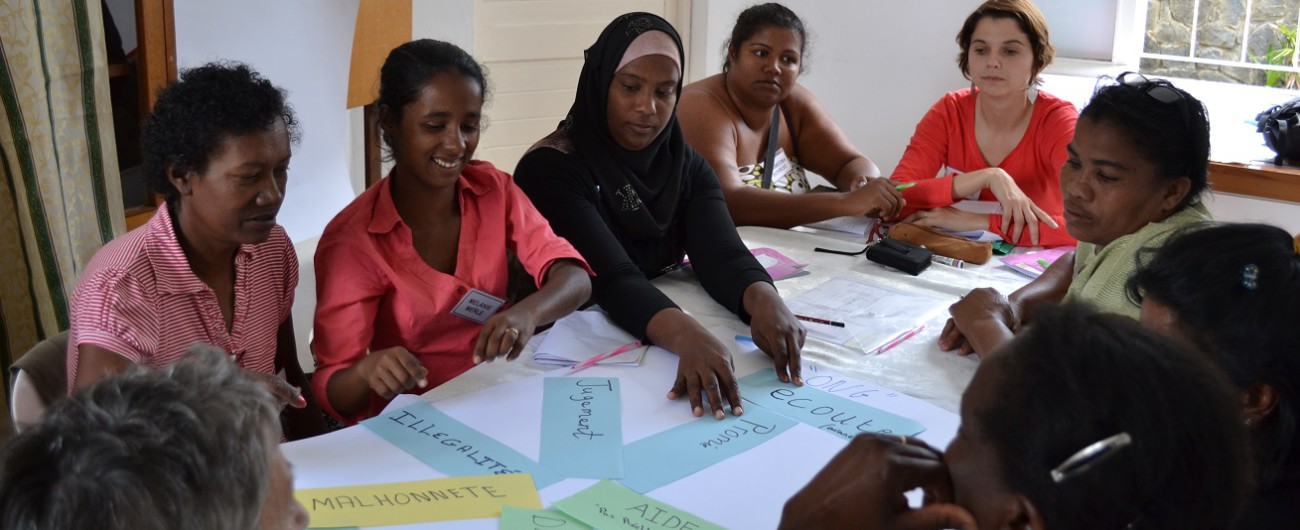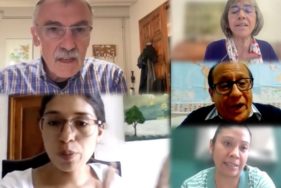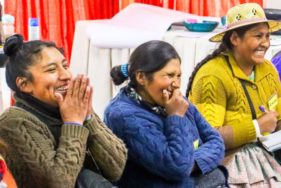Merging of Knowledge
Inclusive processes lead to change
What is it?
The Merging of Knowledge is an inclusive methodology that enables dialogue among people facing extreme poverty and social exclusion, policy makers, academics, and practitioners. The goal is to create new knowledge that is rooted in lived experience, as well as in practice and in academia.
The Merging of Knowledge bridges gaps between people from different backgrounds by creating shared ownership at every stage of a project and cultivating an environment of equal footing among all with the purpose of creating social change.
Beginning in 1993, ATD Fourth World developed this rigorous methodology to create spaces where people in poverty have the freedom to develop their thinking in depth. Most importantly, they do this as equals with researchers. This breaks down the unequal relationships between researchers and “subjects” that traditionally define academic work. The Merging of Knowledge opens up those involved in a project to new perspectives.
To learn more about this approach, download ATD Fourth World’s Guidelines, opens a pdf.
Why?
A prerequisite in the fight against poverty and social exclusion is the recognition of people living in poverty as actors in their own right.
People living in poverty have knowledge gained from life experience. Their experiences and ways of thinking–both individual and collective–have spanned generations. Pooling this knowledge with that of academics and practitioners can lead to smarter and more effective policies and projects.
The Merging of Knowledge methodology, and an array of approaches inspired by it, are now used in many countries around the world to support work in health, social work, education, the humanities, social sciences, and other fields.
Where has it been used?
ATD and Oxford University used the Merging of Knowledge in the three-year Hidden Dimensions of Poverty research project. This approach formed the groundwork for co-leadership of the research between people in poverty, practitioners, and academics.
ATD Fourth World Belgium used this technique in their “From Mistrust to Mutual Understanding” joint training with professionals from the Belgian Child Protection Agency and parents experiencing poverty.
The impacts of this methodology, created and adopted by ATD Fourth World members, have been profound. In an article, Donna Haig Friedman, Senior Research Fellow and Former Director of the Center for Social Policy of UMass Boston, shares her twenty years of experience on collective efforts to impact the root causes of poverty using the Merging of Knowledge.
Read more:
Merging of Knowledge – ATD Fourth World USA
Merging of Knowledge: A dynamic process enabling sharing of knowledge.
The Law on Hold
In 2023, we began posting a series of articles and videos on Poverty, Merging of Knowledge, and Social Criticism from (…) Read more
Whose Knowledge Is It? Empowerment, the Merging of Knowledge, and the Fight to End Poverty
On September 26th, 2024, ATD Fourth World and Equity for Children (a project run by The New School in New (…) Read more
Whose Knowledge Is It?
This article is from ATD Fourth World’s 2023 annual report. Latin America and the Caribbean Published in October 2023, ¿De (…) Read more





